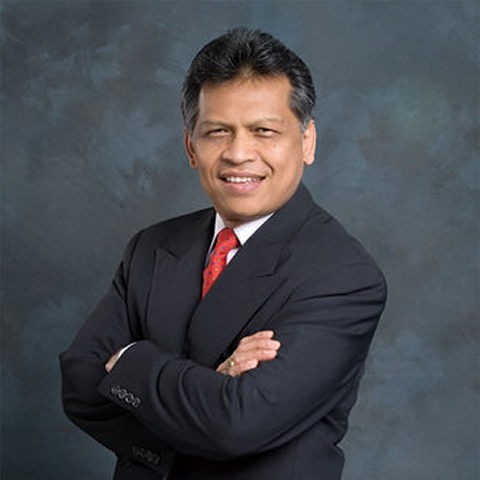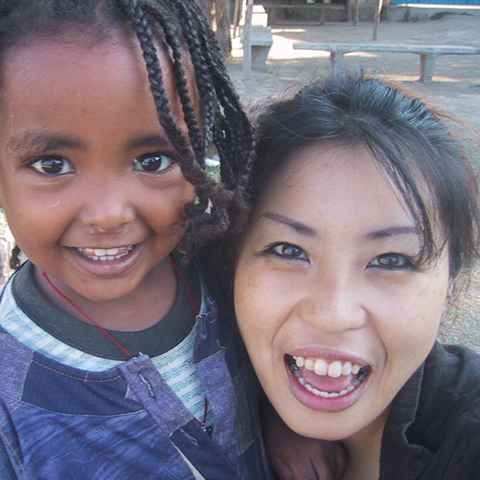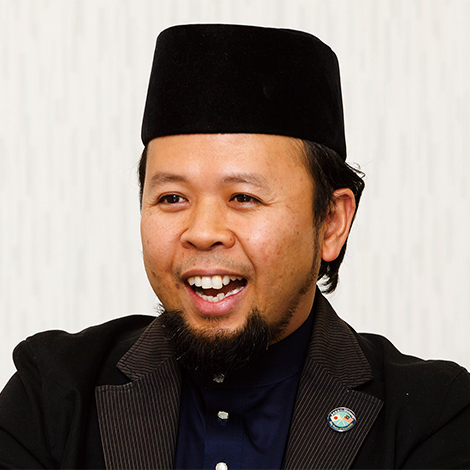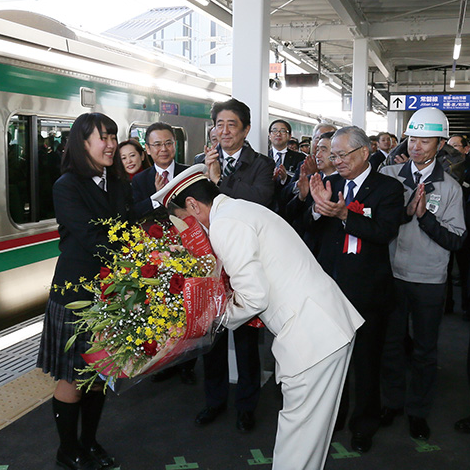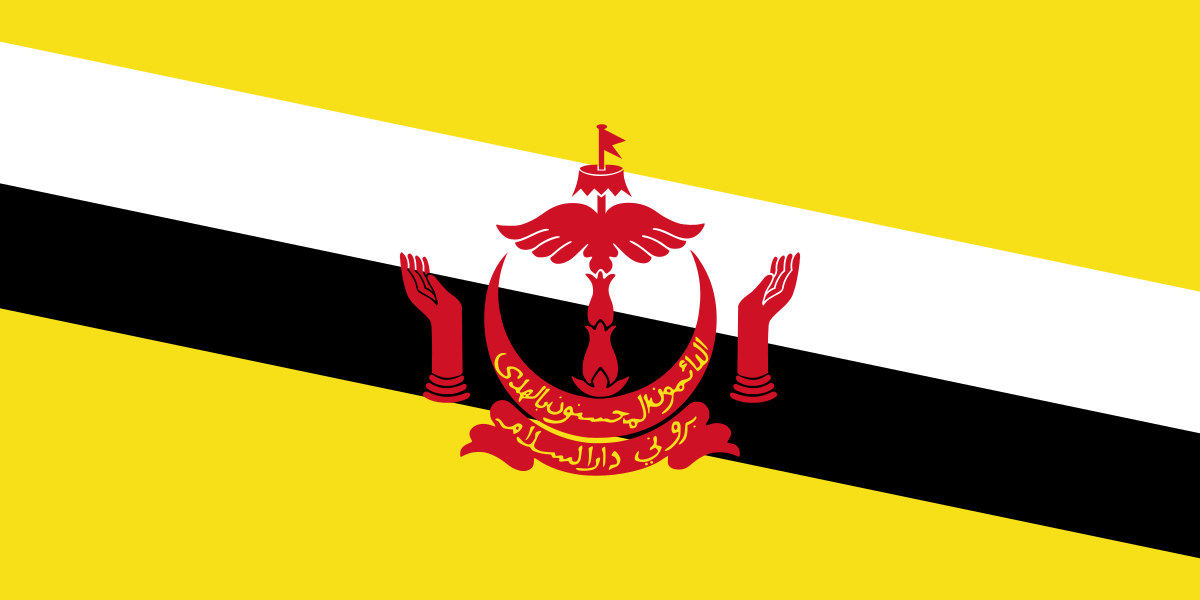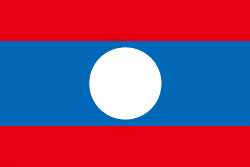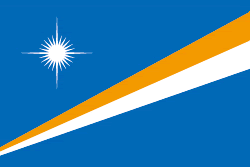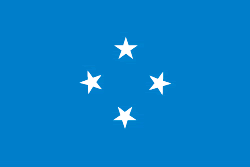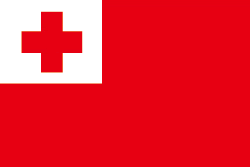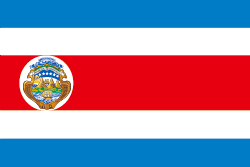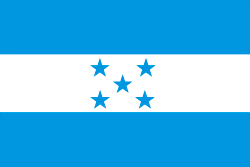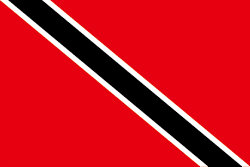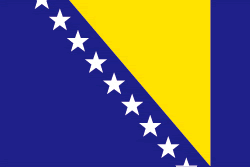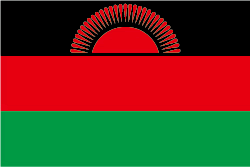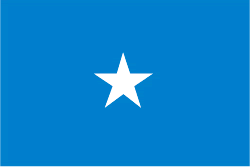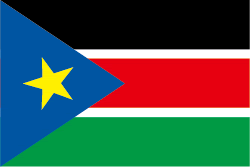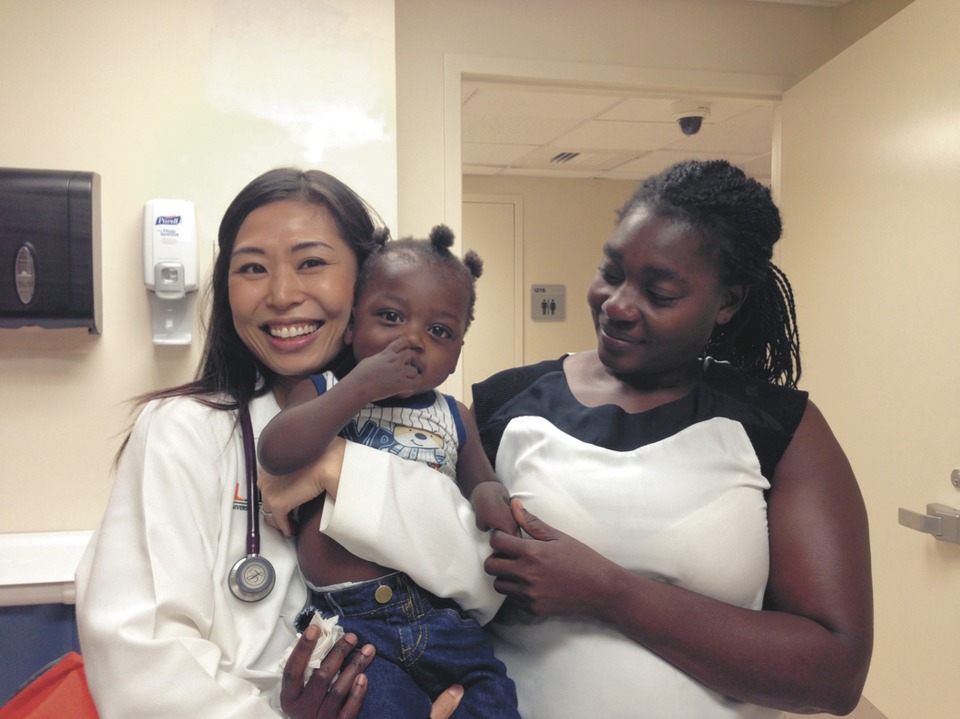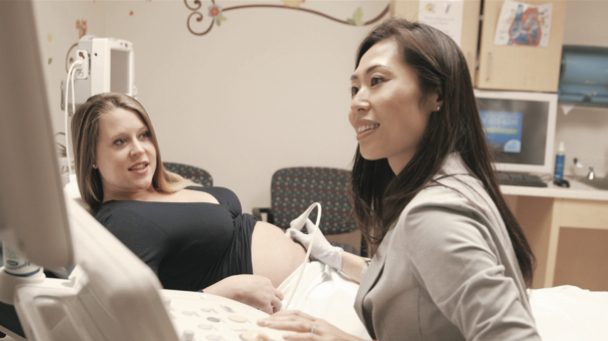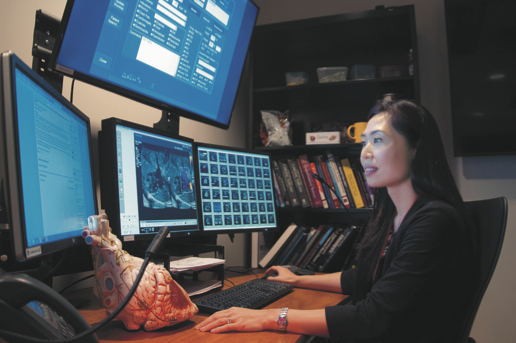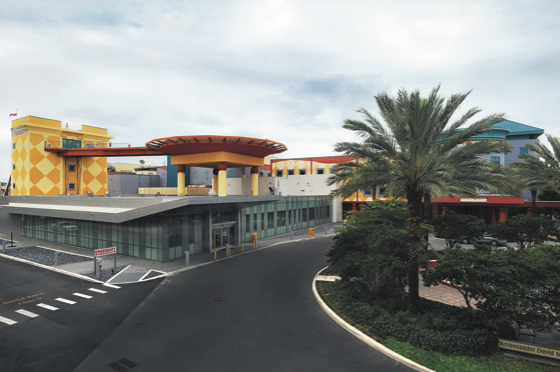In Miami, Florida, in the United States, a Japanese woman is dedicated to prenatal diagnosis of congenital heart disease. Nicklaus Children’s Hospital plans to add an obstetrics department by 2017, with the aim of becoming a pediatric cardiology medical center capable of providing comprehensive care—from diagnosis, childbirth, and surgery to aftercare. Dr. Nao Sasaki is one of the project’s key members.
“Prenatal diagnosis greatly benefits not only the expectant mother but also the baby to be born,” says Dr. Sasaki. Prenatal diagnosis refers to testing the unborn child for birth defects while it is still in the womb. Dr. Sasaki specializes in diagnosing heart defects with ultrasound diagnostic imaging. In the case of serious illness, unless surgery is performed immediately after birth, the baby may lose its life within a few days. If prenatal diagnosis is not carried out and a problem is discovered after the child is born, the delay in action will put the newborn at greater risk, and telling the mother that her child has a birth defect while she is in such a stressed state after giving birth can cause her great psychological trauma.
“I am the mother of two children, so my experience of giving birth makes it easy for me to relate to the worries of expectant mothers. After giving birth, the mother’s hormones are out of balance and she will be exhausted and both mentally and physically unstable. Hearing that her baby has a heart defect can cause immeasurable psychological trauma. Providing the mother with the correct information and explaining the need for surgery before the baby is born allows her to mentally prepare and eases her anxieties.”
But telling the mother is far from easy. Dr. Sasaki told us about one case in which prenatal diagnosis revealed a serious heart defect in the unborn child. Unless surgery was performed immediately after birth, the child would not survive. Explaining this to the mother was very hard. The mother became very upset when she was told that her baby had a heart defect.
“That’s the hardest part of my job. But I try to explain to them in a calm, straightforward manner. I do my best to ease their worries and gain their trust. I tell them that their child’s heart is different from a normal one and that surgery and after care will be necessary; I also tell them that I will be with them every step of the way, before and after the baby is born.”
That mother gave birth to a boy, and he currently receives regular examinations at the hospital. He is now two and walking steadily. When he sees Dr. Sasaki, he runs to her with a big smile on his face. “Such moments make me realize I chose the right profession. It makes me really happy that I’m a doctor.”
“In Florida, there is still much that needs to be improved about comprehensive care for expectant mothers whose children have birth defects. Our plan for the future is to carry out prenatal diagnoses for children with serious disorders here, deliver them here, and perform surgeries here if necessary. In other words, our goal is to be able to provide total care for both mother and child without having to separate them.”
Nao Sasaki
Nao Sasaki graduated from Tokyo Medical and Dental University in 2003. She served as an intern at the U.S. Naval Hospital in Yokosuka, Japan, and moved to the United States in 2004. After completing her residency in general pediatrics and pediatric cardiology in New York, she worked in the Department of Pediatrics at the University of Miami until 2014. She is currently a pediatric cardiologist at Nicklaus Children’s Hospital, where she specializes in diagnostic imaging, focusing particularly on fetal echocardiography.


























